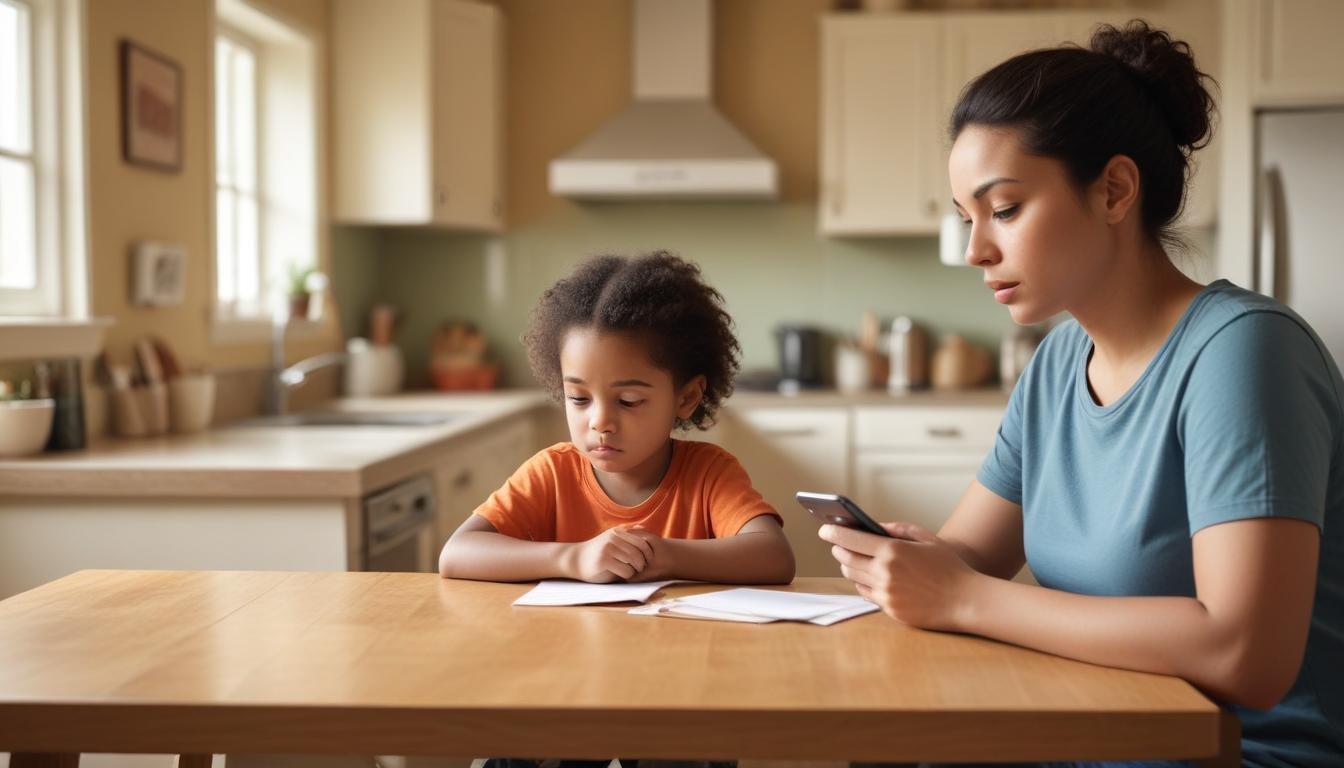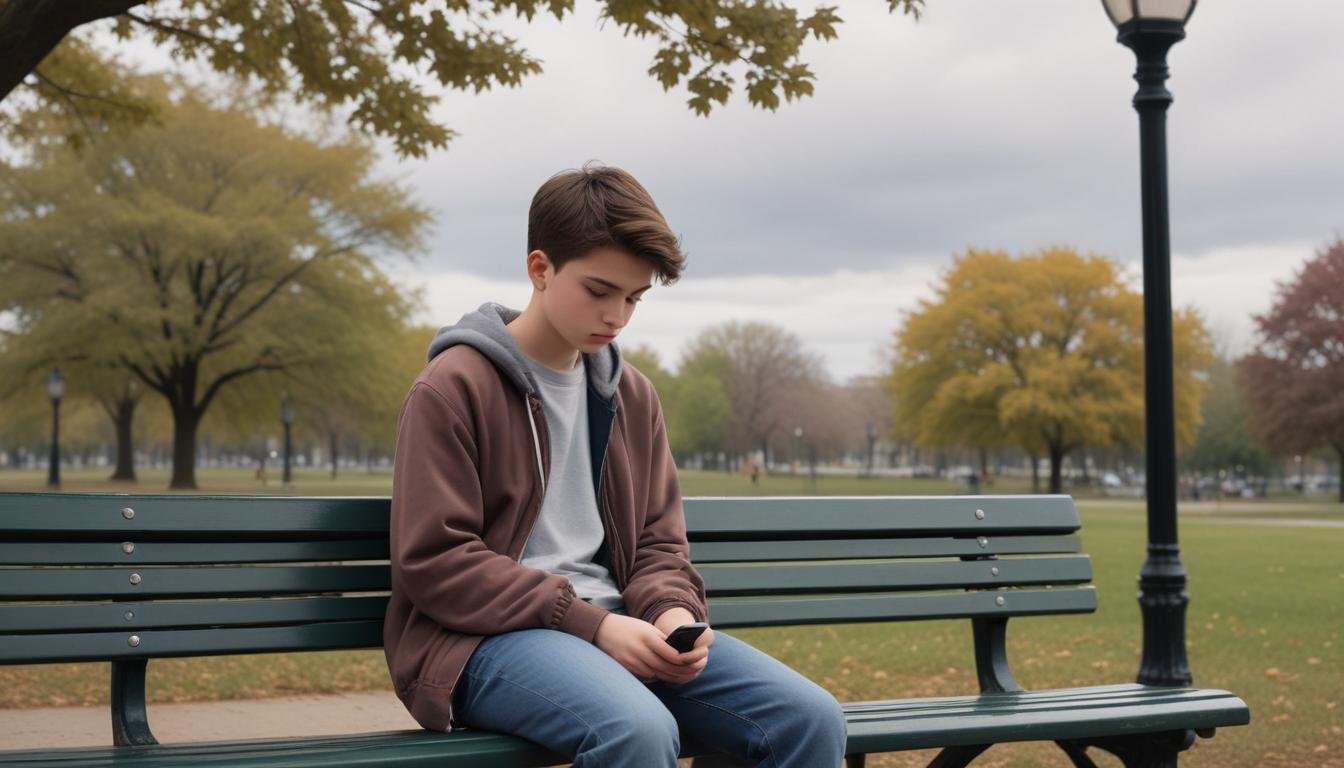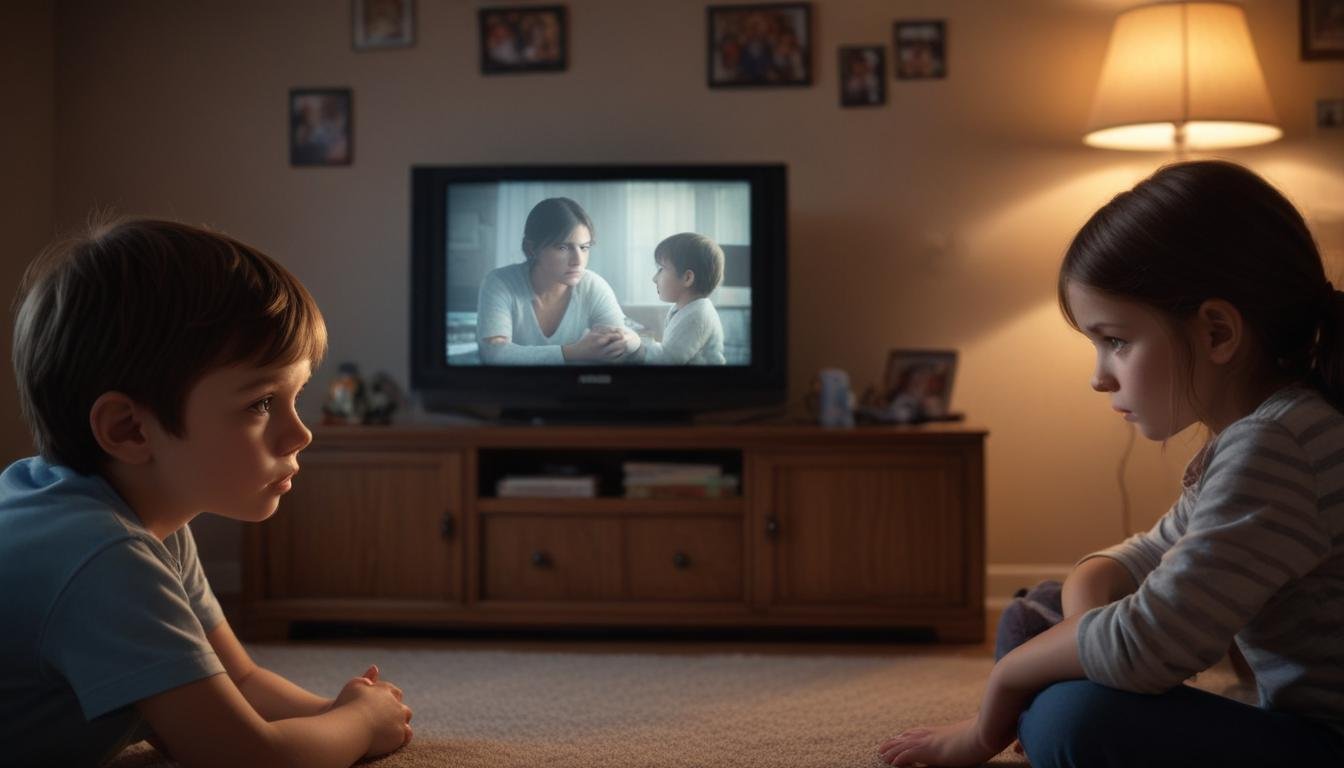Impacts of Cyberbullying on Academic Success
It’s really sad to see how cyberbullying can hurt our kids in so many ways. As a parent, I want the best for my children, just like you do for yours. When I think about how cyberbullying affects school performance, it truly worries me. My daughter, Patricia, is in middle school now, and sometimes she comes home upset after hearing mean comments on social media. It doesn’t just make her sad; it also makes it hard for her to focus on her homework and studies. I can see that it makes her less excited about learning. She loves school and her friends so much, but those nasty comments can put a big cloud over her day.
My boys, Mark and Matthew, are only 8, but I already talk to them about how important it is to be kind. I want them to grow up understanding how their words can affect others. Even at their age, I see how they feel when one of their friends gets upset. Cyberbullying effects aren’t just for teenagers; they can touch younger kids too. I hope that by teaching them about kindness now, they’ll be stronger when they face tough situations later on.
When I think about Robert, our 14-year-old, I remember how he used to be excited about getting perfect grades. Recently, I noticed he seemed different, a bit distracted and less interested in his schoolwork. One night, after dinner, I asked him what was going on. He opened up and told me some kids at school had been saying mean things about him online. It broke my heart to hear that. I could see how it affected his school performance. The joy he once had for learning was being overshadowed by the negativity from a small group of people.
I believe that every child deserves a safe space to learn and grow. Education should be a time of discovery and fun, not fear and sadness. Cyberbullying can take away that experience and leave our kids feeling alone and insecure. It’s important for us as parents to recognize these impacts and work together as families and communities to support our kids. Every small step we take to foster kindness and understanding can help change how our children feel. Let’s encourage our kids to talk about their feelings and create an environment where they can be brave, just like our family aims to do every day. Together, we can make a big difference in their lives.
Signs of Cyberbullying in Teens

When it comes to spotting the signs of cyberbullying in teens, things can sometimes be tricky. Kids can be good at hiding their feelings. As a parent, I believe it is important to stay alert and supportive. For example, I notice little things in Robert that make me worried. He might be more withdrawn or spend extra time on his phone, sometimes avoiding family activities. I ask him about his day, but sometimes he just shrugs and says nothing is wrong.
Patricia, being ten, is more open with me. If something bothers her, she talks to me about it. But I’ve seen her get sad when a friend gets treated badly online. It’s important to watch for changes in our children’s moods. If we notice our kids are feeling down often, it can be a sign they may be experiencing cyberbullying.
I remember one day Robert was having lunch with us, and he didn’t touch his food. When I asked him if he was okay, he just said he wasn’t hungry. This behavior is out of the ordinary for him, as he usually loves his mom’s cooking. His straightened shoulders and quiet tone spoke volumes to me. Sometimes kids might even have trouble sleeping or might seem anxious before school. These signs could mean they’re dealing with cyberbullying effects that are hard for them to talk about.
Mark and Matthew, even at their young age, sometimes overhear conversations at school about what’s happening online. It’s amazing how quickly they grasp the importance of being kind to each other. I remind them that even simple jokes can hurt someone else. Encouraging them to express their feelings helps build a strong bond between us. I want them to feel safe to come to me with anything, especially if someone is being unkind.
In the end, we all want our kids to thrive in their education. When they face difficulties, it can cloud their school performance and confidence. Let’s be attentive and create a space where they can let us know what’s on their minds. By doing this, we can walk alongside them and tackle anything that comes their way together, just like we do as a family. It’s comforting to know that with love and understanding, we can help our children feel supported and strong.
Strategies for Parents to Combat Cyberbullying

As parents, we can play a big role in helping our kids face the challenges of cyberbullying. I know this from my own experience with my children. I always try to create an open and welcoming space at home. When I ask my kids about their day, I make sure they know that any topic is okay to talk about, especially if something makes them feel sad or scared. This way, they can feel safe discussing anything that happens online, even if it’s tough.
One example that comes to mind is when Patricia came home feeling upset one afternoon. I sat down with her, and she shared what was bothering her. A friend had posted something mean about her on social media. I listened carefully, letting her know I was there for her. I told her how important it is to talk about feelings. It figured out that her friend was dealing with some tough stuff at home, which made everything even harder. By talking about it, Patricia felt supported, and she understood that it wasn’t her fault. Having those heart-to-heart conversations helps them navigate the tricky world of online interactions and empowers them to deal with cyberbullying effects.
Another thing we do is to set some clear rules about technology use in our house. We talk about what’s appropriate and what isn’t. For example, we encourage our kids to be nice online and remind them that their words can have a big impact on others. Our family game nights have become a fun way for us to bond and be present together, without the distractions of screens. It makes it easier for my children to unplug and focus on what’s real in their lives. When they feel secure and connected with us, they’re much more likely to come forward if something troubling happens.
I also think it’s important for parents to support each other. We can join forces with other families and set a good example for our kids. When we work together, we create a community where kindness is valued. It reminds me of our neighborhood potluck last summer; everyone brought a dish, sharing stories and laughter. It felt great to see the kids playing joyfully together. These small moments make a big difference and help build a network of support.
Finally, if we notice changes in our kids—like a drop in school performance or a change in mood—we shouldn’t hesitate to reach out for help. This could mean talking to a trusted teacher or school counselor. I’ve learned it’s okay to ask for support when we need it. By taking these actions, we teach our kids that they don’t have to face their struggles alone. We’re all in this together, and with love, patience, and communication, we can help our children thrive and be strong against the challenges of cyberbullying.
The Role of Schools in Addressing Cyberbullying

Schools play an important role in helping kids deal with cyberbullying. I have seen this firsthand with my children and their experiences. When Robert faced some tough moments at school because of mean comments online, I reached out to his teachers. I felt it was important to share what he was going through. The school was very supportive. They listened and offered to help. It made me realize how essential it is for schools and families to work together.
I remember a time when Patricia’s school organized a special assembly about kindness. The teachers talked to the kids about how their words can impact others. They even shared stories about real experiences, helping everyone understand just how serious cyberbullying can be. I could see Patricia really enjoyed the talk, and it sparked a conversation at home. We discussed what kindness means and how to treat others with respect online and offline.
In my neighborhood, we also have seen how active schools can be in creating a safe environment. Recently, the school organized a “No Bullying Week.” They held fun activities and games that encouraged kids to be friends rather than foes. I felt proud that my kids were part of a community that cares so deeply about each other. It shows how working together can make a real difference in school performance, letting our children learn in a happy and safe space.
School staff can also be like superheroes for our kids. If bullying happens, teachers can step in quickly and help resolve conflicts. They often have tools and strategies in place to address these issues. In conversations with other parents, I’ve learned that schools do their best to support kids who are affected by cyberbullying. It’s comforting to know that principles are increasingly making this a priority.
However, this all starts with open communication. I encourage my kids to talk about their school experiences. I remind them to tell a trusted adult if they encounter cyberbullying. It’s so important to let them know they have people who care and will take their concerns seriously. Whether it’s a friend, teacher, or parent, having a support system can do wonders for their confidence and school performance.
I have seen these positive connections create an encouraging environment for learning. It helps kids feel valued and respected. Schools can help build this culture of kindness by encouraging kids to speak up and promoting togetherness. Together, as parents and educators, we can make a difference in each child’s journey. So, let’s lend our voices, support one another, and show our kids that they are never alone. We can empower them to grow into strong individuals who care for others, even in tough situations.
FAQ

Sometimes, we just need to ask questions to understand the challenges our kids face. As a parent, I often find myself wondering how I can help my children when they experience tough situations, like cyberbullying. I believe that communication is key. It’s vital for us to talk to them about their feelings and to listen carefully. For example, I remember one evening after dinner when I sat down with Robert. I simply asked him how things were going at school. He opened up about some comments he saw online that bothered him. It felt good to be there for him, to reassure him that he wasn’t alone.
I think it’s important to know that our kids might not always be comfortable sharing their struggles. That’s why it’s good to keep the conversation going. We can create a safe space where they feel they can express themselves without fear. For example, Patricia loves to share her day with me. I love hearing about her friendships and any challenges she’s facing. This open communication helps me recognize early signs of distress in her life. In our family, we often talk about kindness, empathy, and how to handle difficult situations.
Another way to help is by getting involved in your child’s education and activities. I enjoy joining in on my kids’ school events, like their science fairs. I meet other parents and teachers, and this helps build a support network. My wife, Michelle, also loves volunteering at school events, which creates a community where everyone looks out for each other. We believe that these connections can make a difference in their day-to-day experiences.
I often find myself reflecting on the importance of staying informed. Keeping up with what’s happening in the world of social media and technology helps me understand what my kids are facing. For instance, we regularly discuss the latest apps or games they’re using. This not only helps me figure out what they’re experiencing online but also gives me opportunities to teach them about safety and respect.
Finally, I remind all my children that it’s okay to reach out for help. Sometimes, they might need extra support from teachers or counselors at school, and that’s completely normal. The more we talk about how to deal with cyberbullying, the better equipped they will be to handle it. It’s important to empower our kids to stand up against cruelty by teaching them how to speak up for themselves and others.
By sharing stories, asking questions, and creating a welcoming environment, we can help our children learn and thrive despite the difficulties they face. This journey teaches them not just about school performance but also about resilience, compassion, and the power of a supportive community.
About me
My name is Dr. Victor Lee, and cybersecurity isn’t just what I do—it’s what I’m passionate about. With my doctorate in Computer and Information Security and more than two decades of experience, I’ve witnessed the evolution of cybersecurity firsthand. I believe in sharing knowledge to make a difference, which has inspired me to teach college-level courses online. My mission is to make a meaningful impact in the fight against cyber threats.
I’m happily married and a proud father of four amazing children. My wife, Michelle, is a talented marketing manager in her 40s. We have twin sons, Mark and Matthew, who are 8 years old and bring so much joy to our lives. Our daughter, Patricia, is a bright 10-year-old excelling in middle school. Our oldest, Robert, is 14 and navigating the exciting world of high school. As a family, we call Fresno, California, our home.


